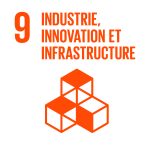Titre : Gestion de la montée en puissance des services en tenant compte de la durabilité et des risques
Beginning of thesis : 2021
End of thesis : 2025
Abstract : Cette thèse explore la gestion de la montée en puissance des services, un concept multidisciplinaire visant à introduire et développer rapidement des services dans un environnement dynamique. Elle répond à deux questions fondamentales : Quand et comment intensifier un service. Une méthodologie de recherche en sciences de la conception (DSR) a été employée, incluant une revue systématique de la littérature (SLR) sur la prise de décision dans ce domaine. Un cadre conceptuel structuré, basé sur le modèle agile principales et le stage-gate, a été développé pour répondre à la question quand intensifier, en mettant en avant l’importance du développement itératif et de l’amélioration continue. La contribution principale est le cadre « Agile Ramp-up Framework for Escalation Stage » (ARFES), qui répond à la question comment intensifier. ARFES intègre principes agiles, simulation, durabilité, gestion des risques et standardisation des processus pour améliorer les performances de manière systématique et itérative. Validé par une évaluation de contenu et une étude de cas pratique dans la fabrication additive, ce cadre offre aux organisations une approche flexible pour s’adapter aux marchés en constante évolution.
The thesis project will benefit from ongoing international collaborations with European and American universities, one or several stays can be planned, in particular in US within the framework of the SUSTAIN project.
Keywords : ramp-up, project management, agility, sustainability, risk, simulation, service, production
Date de soutenance prévue : 29/01/2025
Encadrement :
- Directeur de thèse : Khaled Medini, Professeur Mines Saint-Étienne, LIMOS
- Co-directrice : Valérie Laforest, Professeur Mines Saint-Étienne, UMR 5600 EVS
Partners or/and funders :
Objectifs de développement durable concernés :


Publications
- Agility is a major concern for industries across manufacturing and service sectors for a variety of reasons. For instance, frequent product development to meet evolving customer requirements and changing markets requires efficient and agile processes. Therefore, companies need to capitalize on product and service development and ramp-up projects in order to improve their efficiency as […]
- This PhD research explores the development of service ramp-up management, a multidisciplinary concept that encompasses the processes and strategies employed to effectively introduce and rapidly scale services in today’s dynamic business environment. This research addresses the complexities associated with service ramp-up and aims to answer two simple but fundamental research questions (RQs) in this context; […]
- Ramp-up often requires the implementation of a new production system and some adaptations for the entire supply chain. It is also a major issue for service companies in both secondary and tertiary sectors. Although some of these companies are not confronted with the management of a new production system, they also have to face many […]
- In the dynamic context of the competitive and unpredictable marketplace, the process of ramping up production or services is one of the most challenging decision-making problems in product or service life cycle (PLC or SLC). Agile ramp-up management refers to the ability of an organization to quickly adapt and scale its production or service processes […]
- Ramp-up, as a critical phase in the life cycle of a new product or service, can significantly affect business success and market leadership. Moreover, in today’s dynamic business environment manufacturing and service companies face many difficulties such as changing customer requirements and high uncertainty in both demand and supply. To remain competitive, there is a […]
Actualités
- Shervin Kadkhoda-Ahmadi a soutenu sa thèse le mercredi 29 janvier 2025. Son travail a porté sur “Gestion de la montée en puissance des services en tenant compte de la durabilité et des risques”. Cette thèse explore la gestion de la … Lire la Suite →
- Shervin KADKHODA-AHMADI a le plaisir de vous inviter à sa soutenance de thèse intitulée: “Gestion de la montée en puissance des services en tenant compte de la durabilité et des risques“ . La soutenance se déroulera en présentiel le mercredi … Lire la Suite →
- Du 29 au 31 mai, se tenait le 2ème congrès de la Société d’Automatique, de Génie Industriel et de Productique (SAGIP). Le congrès annuel de la SAGIP est une manifestation qui vise à rassembler les communautés françaises de recherche en Génie … Lire la Suite →
- Ce 17 octobre, se tenait le Forum » Here. We. Go » pour l’Industrie du Futur organisé par l’Académie Franco-Allemande pour l’Industrie du Futur. « Here. We. Go » est un évènement annuel majeur de la communauté de l’industrie du futur, qui a regroupé … Lire la Suite →